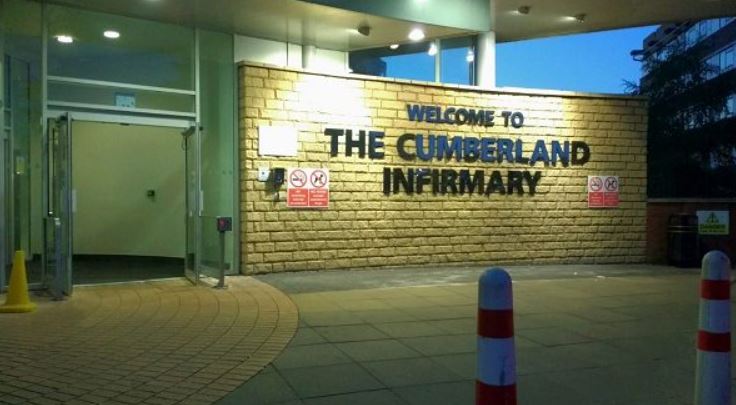
Thousands more patients were added to the waiting list for routine treatment at North Cumbria Integrated Care Trust in December, figures show.
Health Secretary Sajid Javid has set out plans to help the NHS recover from COVID-19, as the number of people on waiting lists reached record levels nationally – but he has said they will continue to rise for another two years.
NHS England figures show 30,509 patients were waiting for non-urgent elective operations or treatment at North Cumbria Integrated Care NHS Foundation Trust at the end of December – up from 27,262 the month before.
December’s figure was also 18 per cent more than a year earlier, when there were 25,809 patients on the waiting list.
The median waiting time from referral to treatment was 14 weeks in December, compared to 13 weeks a year earlier.
The median – the middle number in a series – is used to ensure the figures are not skewed by extreme highs or lows.
It meant 61 per cent of patients started treatment within the NHS’s target time of 18 weeks – slightly lower than last month, when 62 per cent of patients began treatment on time.
Across England, 6.07 million people were waiting to start treatment at the end of December – up from six million in November, and the highest number since records began in August 2007.
Of them, 311,000 had been waiting longer than a year – 39 per cent more than in December 2020.
Among those on the waiting list are people needing scans and tests, hip and knee operations, and cataract surgery.
The Government and NHS England have set an ambition of eliminating all waits of more than a year by March 2025.
Separate NHS figures show the North Cumbria Integrated Care Trust breached its cancer waiting time target in December.
The NHS states 85 per cent of cancer patients urgently referred by a GP should start treatment within 62 days.
But at the trust, just 66 per cent of patients who received cancer treatment in December were seen within two months of an urgent referral.
That was up from 53 per cent in November, but down from 70 per cent the previous December.
Trusts must also tell at least 75 per cent of those urgently referred for a cancer check, whether they have the disease within 28 days.
The figures show the North Cumbria Integrated Care Trust fell below the target, with 73 per cent of patients being told the outcome on time in December.
Measures announced by the Government to tackle issues within the health service, include prioritising diagnosis and treatment, increasing activity through dedicated surgical hubs, and hiring 15,000 more care workers by the end of March.
Prime Minister Boris Johnson said the plan was the “biggest catch-up programme in the history of the health service backed by unprecedented funding”.
But health think tank The King’s Fund cast doubt over the plan.
Siva Anandaciva, chief analyst, said: “The Government has provided additional funding and agreed a new plan with the NHS to improve hospital waits, but the glaring omission remains a strategy to ensure there are enough staff to make shorter waits a reality.”
NHS national medical director Professor Stephen Powis said: “While pressures remain for our staff, with the highest number of life-threatening ambulance callouts and 111 calls for the month of January, NHS staff are committed to bringing down the backlog, and the clear plan published this week will help increase the number of checks, tests and treatment provided for patients.”








